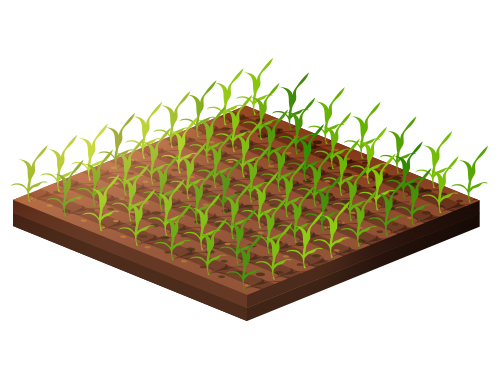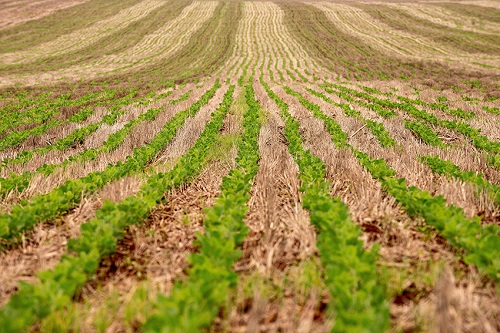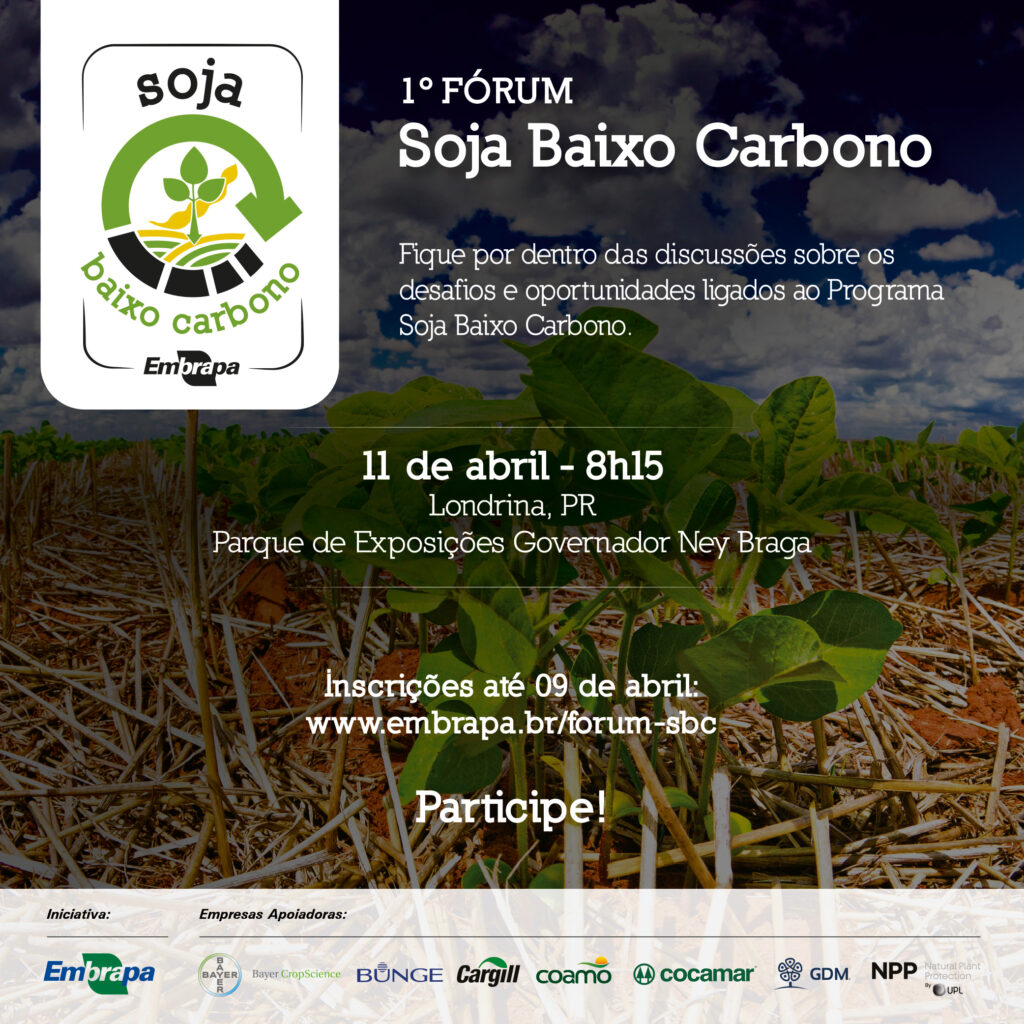Low Carbon Soybean Program
Valorization of Sustainable Soybean Production System
The Low Carbon Soybean Program (LCSP) is an initiative aimed at adding value to soybeans produced in systems that contribute to reducing greenhouse gas emissions, which are responsible for global warming. The objective of the LCSP is to certify the sustainability of Brazilian soybean production, making tangible both qualitative and quantitative aspects of the grain produced with technologies and agricultural practices that reduce the intensity of greenhouse gas emissions (GHGs).
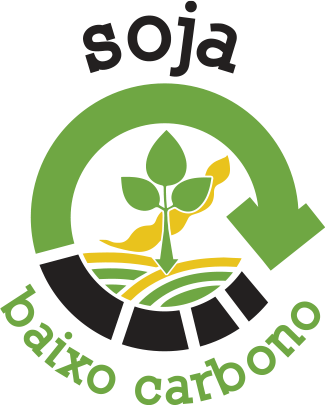
Learn more about the
Low Carbon Soybean Program
Low Carbon Soybean will add value to soybeans produced in systems that are competitive and contribute to combating global warming. It is an innovative concept focused on measuring benefits and certifying production practices, based on Brazilian science methodology with internationally validated protocols.
Sectoral Innovation in the Soybean Supply Chain
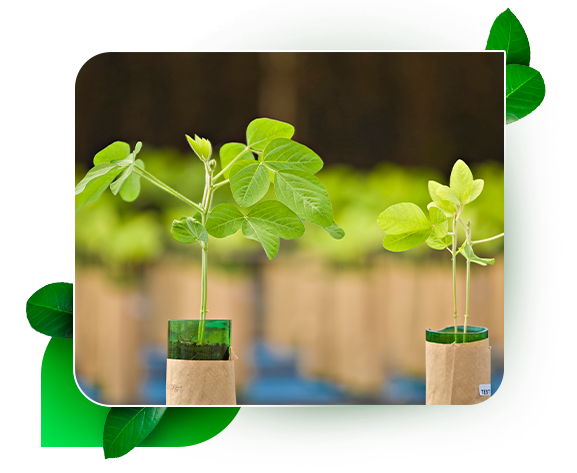
Good Agricultural Practices and LCSP
Embrapa calculates that the greenhouse gas emission intensity (GHGEI) related to mechanized operations (diesel use) and the use of chemical inputs (fertilizers and pesticides) in the typical production systems of each Brazilian production region, also known as modalities, is around 400 kg of CO2-equivalent per ton of grains produced.
The LCSP estimates that the potential reduction in greenhouse gas emissions can be approximately 30% by adopting sustainable technologies advocated by research. This is because agricultural practices that reduce greenhouse gas emissions are the same ones that increase productivity and reduce costs, thereby bringing gains to the production system.
Guidelines of the LCSP
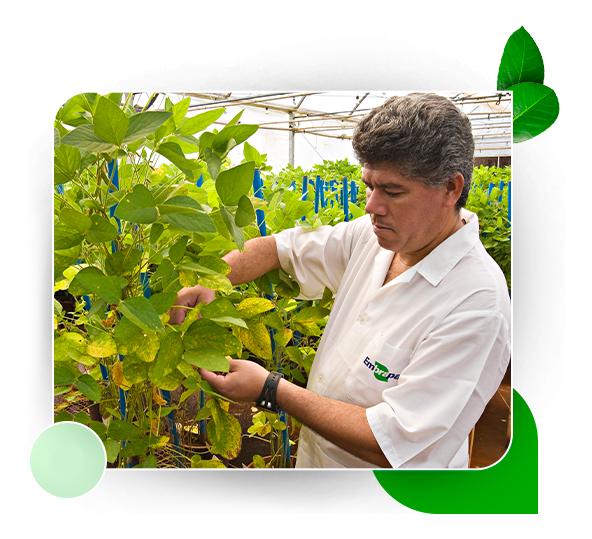
Multisector Participation
Get updated information from the
LCS Program
LCS Program - Low Carbon Soy: a new concept of sustainable soybeans

News
Multimedia
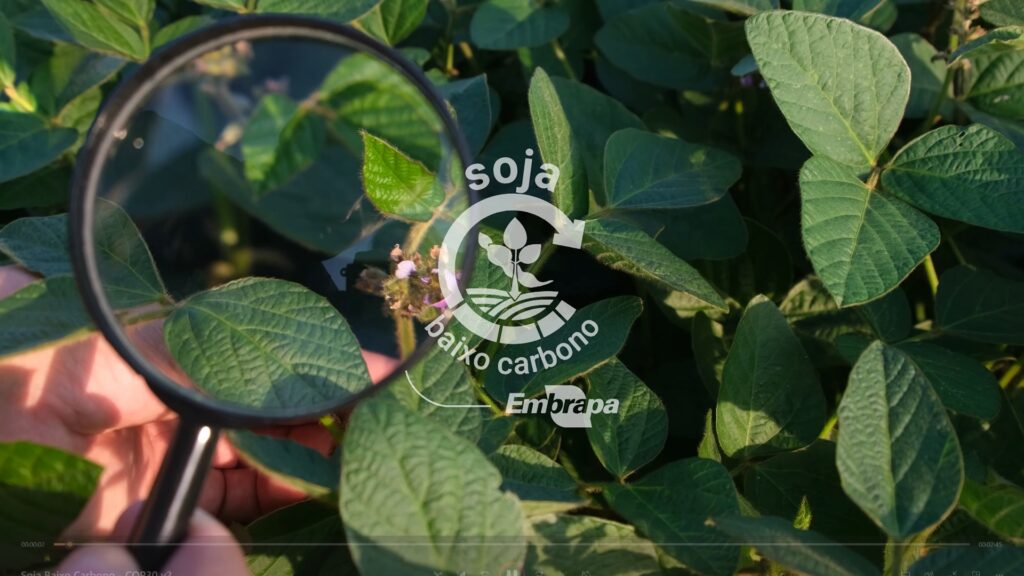
Soja Baixo Carbono | Low Carbon Soybean
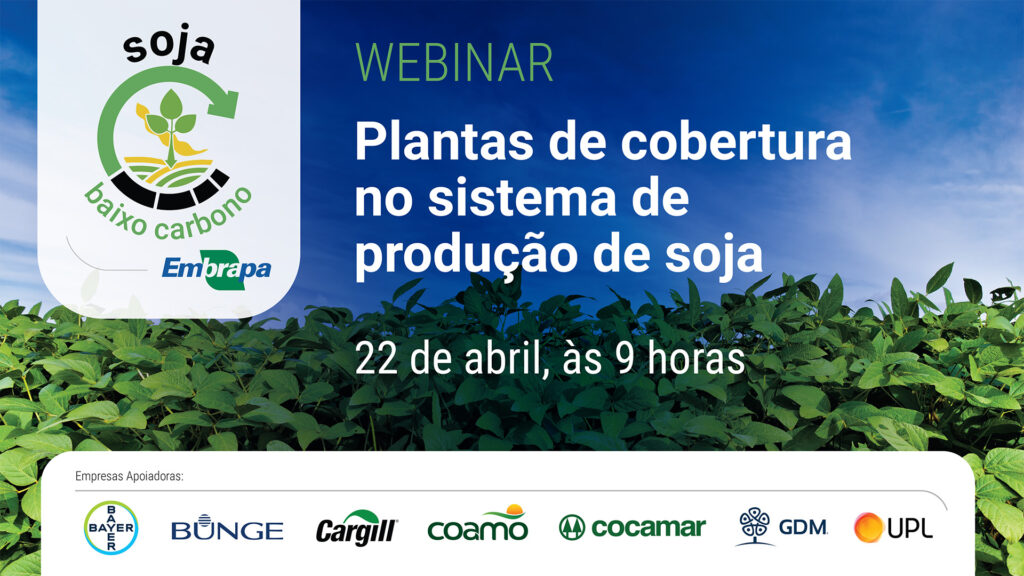
Cover crops in the soybean production system















